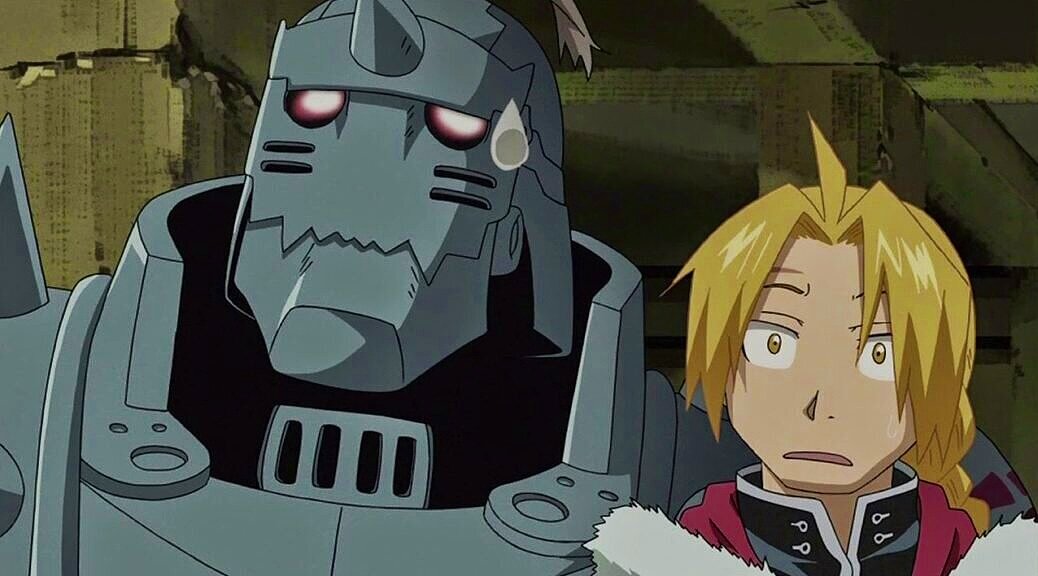Religiously Nerdy is an exciting new project that seeks to create a space for Muslim nerds who love Anime and pop-culture. In this article, they highlight examples of Islamic characteristics in some of their favourite shows.
At Religiously Nerdy, our goal is to share our excitement and love for nerd culture and to find the hidden pieces of ourselves within the characters. We want to build a community of fellow Muslims like ourselves who love anime, manga, cosplay, fiction, sci-fi and fantasy, and let them know they are not alone. We know there are few anime that have an Islamic focus or Muslim characters, but we found some who remind us of our favourite companions and other tenants of Islamic history. Outside of popular household names like Pokémon, Naruto, and Dragon Ball, we will be sharing some safe shows to watch with the family.
Ultimately, there is a whole other side to pop culture that we as Muslims often overlook or deem inappropriate. From a previous article about finding references to Muslims in the media, we’ll be shedding light on references to Islamic characteristics in anime. For those uncertain about anime, it is an animation of various works regardless of style or origin. It is not subjected to only Japan but is worldwide.
Kids on the Slope
Top student and classical pianist Kaoru Nishimi arrives in his first year of high school preparing himself for a year of solitude, that is until he meets Sentarou Kawabuchi. Sentarou has a deep love for jazz music and inspires Kaoru to learn about the genre. Their mutual love for jazz brings them to after-school jam sessions in their local record shop owned by fellow classmate Ritsuko Mukae. Kids on the Slope follows the story of these three individuals brought together by their love for jazz.
Our star in question here is Sentarou Kawabuchi. Born of a Japanese/American romance mid World War II, Kawabuchi was left abandoned at his grandmother’s, who then left him at a local church hating the fact that he was part American. Even though Kawabuchi lived recklessly (i.e., school brawls, “notorious bad boy”), he still held on to his faith. He made sure to take care of his fellow adopted family members, being the oldest among them, and when life got hard, he fought harder and stayed close to the church.
For his kind heart, he reminds us of Abu Bakr.
Avatar: The Last Air Bender
There is always speculation regarding Avatar’s place as an anime or just simply a cartoon, but as we mentioned earlier, anime is any form of animation. Since its arrival to Netflix, Avatar has helped us get through the pandemic with its diverse characters, redemption arcs, and most importantly, a deeper insight into ourselves. It was such a well-written show, it’s return brought nostalgia to those who watched it originally in 2005 on Nickelodeon, and spurred think pieces and even youth reflection circles.
While there are countless characters we could focus on, Iroh is the true victor of the show. Despite his past being the “Dragon of the West”, he followed his nephew, Zuko, into exile, mentoring him as well as #TheGAang (Aang, Sokka, Katara, and Toph). Iroh steadily maintained a philosophy encompassing peace, harmony, and mutual understanding for all the elements by learning their styles, walks of life, and teaching those who would listen. His gentle demeanour brought peace to a raging soul, calm to a conflicted mind, and joy to all those who let him in.
For his view on life, he reminds us of Waraqah ibn Nawfal.
Demon Slayer
There are demons in Taisho-era Japan. During his trek into a local village for work, Tanjiro Kamado stays overnight due to a storm before returning back home from his sales. In this time, a demon comes and slaughters his family leaving his youngest sister Nezuko as the sole survivor, except she has been turned into a demon herself. Determined to find a way to return his sister to normal Tanjiro undergoes extensive training to join Demon Corps and prepare himself to face the demon who changed his sister and ruined his life.
Tanjiro’s most respectable attribute is his empathy. He is able to empathize with anyone, including the demons who he encounters, as he is able to see the deepest most human or vulnerable side in them. Even though his kindness makes his outer shell, his determination, desire to protect his family and those close to him, and his lack of tolerance for rudeness and cowardice drive him. All of that disappears upon his first encounter with Muzan, the demon who killed his family; who he also calls “a being that should not exist”.
For his character, he reminds us of Ali.
Full Metal Alchemist
Edward and Alphonse Elric are alchemists with a tragic past. With the passing of their mother, the two brothers try to bring her back via the law of equivalent exchange which resulted in Ed losing an arm and a leg, and his younger brother Alphonse losing his entire body leaving his soul to reside in a suit of armor. The brothers are taken in by the Rockbell’s who are close friends with the Elric’s, where they are approached by two State Alchemists to take their exam to perform alchemy for the military. During their time working for the military, they are encountered by a man named Scar.
Scar is a brooding, angry man, filled with hatred towards those who destroyed his homeland. He loves his religion and God fully even though his actions often go against its teachings. Despite his anger, his kind nature shines through in his compassion and sympathy with those who take care of their loved ones. As a former warrior-monk, his vengeance gets clouded as he honours the sick and dying’s last wishes and prays for the dead. All of this stems from his past of love and community being taken from him, so of his surviving family, he takes their criticisms to heart.
For his fire and passion, he reminds us of Omar.
Of course, it is easy to only see the ugly side of anime and to look past it, but the stories that lie within are the true gold. These are only four examples in a sea of animated shows that exist. While there are not as many Muslims in anime, a lot of creators gather their inspiration from various Muslim cultures, even if they themselves are not religious. If you are looking for more recommendations, check out Muslim Manga or Religiously Nerdy.
You can stay up to date with all of the work that Religiously Nerdy produce over on their website: religiouslynerdy.com
You can also follow them on Instagram: @religiouslysnerdy










